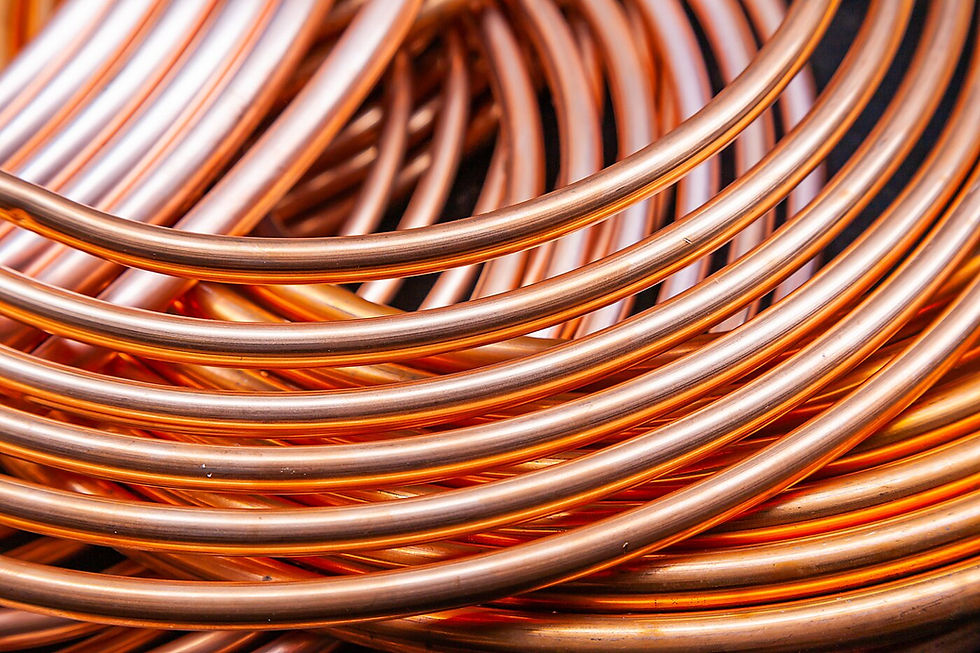The Importance of Nickel Alloy Round Bars in Nuclear Engineering
- P&P Non-Ferrous Ltd

- Feb 10, 2025
- 2 min read
Selecting the right materials for nuclear reactor construction is essential to ensuring both safety and performance. Among the most reliable materials in this field are nickel alloy round bars. Engineered from high performance nickel-based alloys, these bars are integral to various reactor components, offering unmatched durability and reliability in extreme operating conditions.
Nickel alloys are highly valued for their superior mechanical strength, resistance to corrosion and ability to withstand high temperatures. These properties make nickel alloy round bars an ideal choice for the rigorous demands of nuclear reactors, where stability and longevity are paramount.
In February 2025, the UK government announced significant reforms to planning regulations to expedite the construction of nuclear power plants across England and Wales. These changes aim to facilitate the development of Small Modular Reactors (SMRs) by allowing them to be built in a wider range of locations, beyond the previously designated eight sites. The reforms also include removing the expiry date on nuclear planning rules, enabling long-term project planning.

Why Nickel Alloy Round Bars?
Nickel alloy round bars have become indispensable in this field, offering several advantages over other metals including:
Corrosion Resistance: Nickel alloys exhibit exceptional resistance to corrosion, particularly in high temperature and high pressure environments, ensuring the longevity of reactor components.
High Temperature Strength: These alloys maintain their mechanical properties at elevated temperatures, crucial for components exposed to the reactor core's heat.
Radiation Resistance: Nickel alloys can withstand high radiation doses without significant degradation, maintaining structural integrity over extended periods.
Durability and Reliability: The inherent strength and toughness of nickel alloys make them ideal for critical applications within nuclear reactors.
Nuclear Reactor Applications
Nickel alloy round bars are utilised in various key applications within nuclear reactors:
Control Rod Mechanisms: Control rods regulate the nuclear fission process. Nickel alloys are used in these mechanisms due to their ability to endure intense neutron flux and thermal stresses.
Piping Systems: The reactor's piping systems transport fluids under high pressure and temperature. Nickel alloy round bars are employed in manufacturing these pipes, offering superior corrosion resistance and strength.
Structural Components: Nickel alloys are used in supports, brackets and reinforcements, providing high tensile strength and resistance to thermal expansion, essential for maintaining structural stability.
Heat Exchangers: These components transfer heat from the reactor to the steam generators. Nickel alloys ensure efficient operation and longevity due to their resistance to corrosion and high temperatures.
Several grades of nickel alloy round bars are commonly used in nuclear reactor construction:
Inconel 625: Known for its excellent corrosion resistance and high strength, Inconel 625 is suitable for high-pressure and high-temperature applications.
Inconel 718: This alloy offers high yield strength and creep resistance, making it ideal for components subjected to extreme mechanical stresses.
Inconel X-750: With good fatigue and corrosion resistance, Inconel X-750 is often used in applications requiring high strength at temperatures up to 700°C.
The Takeaway
The recent UK government announcement to streamline nuclear reactor construction underscores the importance of reliable materials like nickel alloy round bars. Their exceptional properties, including corrosion resistance, high temperature strength and durability, make them integral to the safe and efficient operation of nuclear reactors. As the nuclear industry advances, nickel alloy round bars will continue to play a vital role in supporting these developments.




Comments